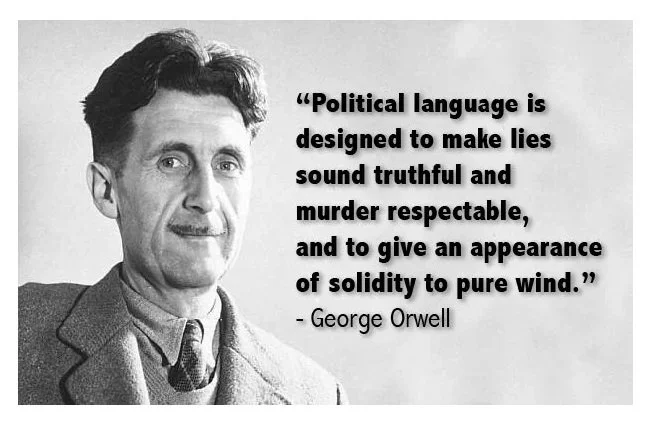“Have Your Say”, Comments and Online Discourse
“Unfortunately I don’t respect your opinion Colin, as you’re a barely literate imbecile who has a poor grasp on both contemporary social issues and reality”
This is a big subject and there’s absolutely no way that I can do justice to it in this meagre blog post. I’m going to reference several aspects of online discourse in an attempt to highlight what I see as a major cultural shift that has happened in the last two decades. I’ll be reflecting upon my own experiences which may differ from yours. Geography, communities and culture plays a part in all this and what I observe from my “window upon the world”, may not be identical to yours. But I believe that human interaction is changing; shifting on its axis and will continue to do so. Furthermore, that the liberating benefits of social media have come with several consequences and not all of them good. Am I advocating that things return exactly as they were? No. But I feel that the pendulum has swung from one extreme to another, where the most equitable position is somewhere between these two.
During my youth newspapers were king. Television news was not a 24-hour interactive process, but a passive medium designed to impart data primarily. Leonard Parkin didn’t give a shit whether the story he’d just read had you foaming at the mouth or whooping with delight like a troupe of Mandrills at a watering hole. Nope, he and other news readers were just there to tell you the news. Therefore, if you had something to say, you’d write a letter to your newspaper of choice. It would then be subject to the scruples of an editor with regard to content, tone and length. Thus, those letters published were civil at least in tone. Social etiquette and old-world notions about manners tended to keep any exchange of views relatively polite. Passion could still run high but ultimately no one called each other a cunt. At least not via the letters page. If your age has meant that you missed the era of writing a “strongly worded letter to The Times”, then its importance as a form of debate may be lost on you. But it was such a mainstay of public discourse, that it even became a trope of TV comedy and satire. Monty Python frequently had sketches based upon such angry epistles.
“Dear Sir, I would like to complain in the strongest terms at your inference that writing letters is in some way anachronistic”…
Nowadays, the forum for such debates is either the comments section of a news website or Twitter itself. It’s easy to see how this situation came about. Continuous news coverage has created an appetite for constant content. Input from your audience is a handy form of “filler”. Also, a popular comments section is an added attraction for a website and can in itself be a source of traffic. Initially when this kind of functionality was first rolled out, it usually produced benign content. However, the key to any sort of efficient community management is moderation. When applied in a sober and mature fashion, civilised discourse prevails. If neglected, then you’ll soon find an environment dominated by bellicose, pernicious rhetoric, with no other purpose other than to kill debate. And the thing about moderation is that it needs to be done by people rather than AI. It requires a particular set of social skills and a measured and reasoned mindset. Furthermore, like anything in life, if you want the best you have to pay for it. Sadly, spending money on community moderation is not seen as a priority by those who control budgets.
As well as the above, here are some additional factors that have contributed to where we find ourselves today. Educational standards have changed. There are still schools and exam systems that provide intellectual rigour but there has also been a cultural shift towards learning to pass a specific exam. This is not the same as fostering a questioning mindset and providing the tools to facilitate such a philosophy. This manifests itself mainly as a decline in critical thinking and debating skills which is then further compounded by a growth in emotional dysfunction. Discussing popular topical points has become emotive, tribal and dogmatic. An opposing view is not just a contrary opinion but a personal attack upon you and your values. Social media has extended an unchecked platform to all comers, eliminating the traditional requirement of “knowing what you are talking about” that excluded certain people from older mediums such as TV and print media. Facts and data have been replaced with feelings because they are subjective, personal and far harder to disprove.
The “edifying” comments section of the LBC news radio station website
So where does all this leave us as a society? Well for many it means that they’re less likely to express an opinion, for fear of finding themselves accused of something or in the centre of a major, aggressive and contentious argument. For some that is the desired result, as it effectively puts them in charge of the narrative. It’s a lot easier to drive people away than to have to cogently debate with them. In the long term replacing intelligent, measured discussion with an arbitrary culture war, means that people will simply stay within the confines of likeminded communities. This ultimately leads to social division and compounds matters. And another problem from both a business and socio-political perspective is that the loudest opinion gets heard and acted upon, irrespective of its veracity, rectitude or overall support. Twitter outrage is a far cry from national outrage but the two are often conflated.
But it should be noted that “have your say culture” is very good for business. Content creators of all kinds often feel the need to solicit public opinion under this banner because it generates interest. Are they genuinely interested in the thoughts of opinions of the likes of you and I? I suspect not. But inviting people to “join the debate” is an incentive to visit a site. It generates traffic and is a form of marketing. Would talent-based reality shows be as popular if the public couldn’t vote on the outcome? More than likely not. Social media has had a profound impact upon society in the past decade. It has broken down barriers, removed gate keepers and given everyone a voice. It can be argued that in principle that is a good thing. Yet although everyone is entitled to an opinion, they are not all of equal merit. And some ideas and concepts are best left outside of the spotlight. Yet by inviting all to have their say, many institutions have fallen prey to the fallacy of balance and all views should always be offered with an alternative by default. Therein lies madness
“Please send in your comments, so we can judge you”
This malady blights all communities. I have referenced news websites and political forums but you’ll find the same problem in the gaming community. Write a post about the most inane and innocuous aspects of an MMORPG and there’s a good chance someone will purposely misconstrue your words or simply start an argument because they just don’t like the cut of your jib. As to the solution now that this particular genie is out of the bottle, I suspect it will take a long time to put it back or domesticate it. There is no quick fix, so the best approach is a robust and concerted policy of moderation. “Have your say” culture has in many ways circumnavigated the traditional existing social etiquette so we have to make it the cultural norm again. I am reminded of the campaign against drinking and driving that ran in the UK for nearly two decades. The message through advertising was relentlessly hammered home and over time by a form of cultural osmosis it became broadly the social norm again. Perhaps that’s how we curb the negative aspects of folk having their say. Let us not forget that there are positives to be had from shared experiences.




























